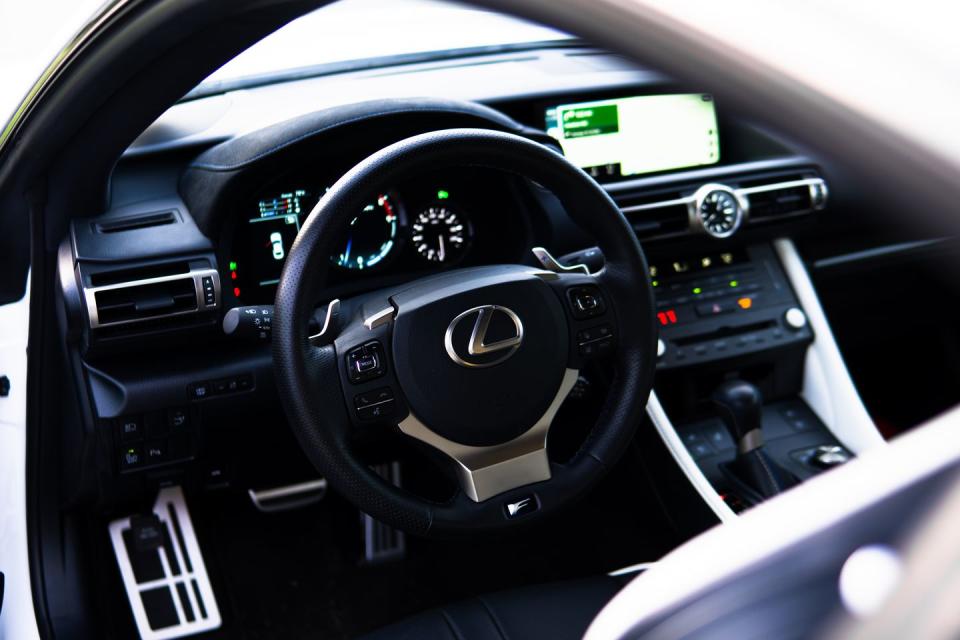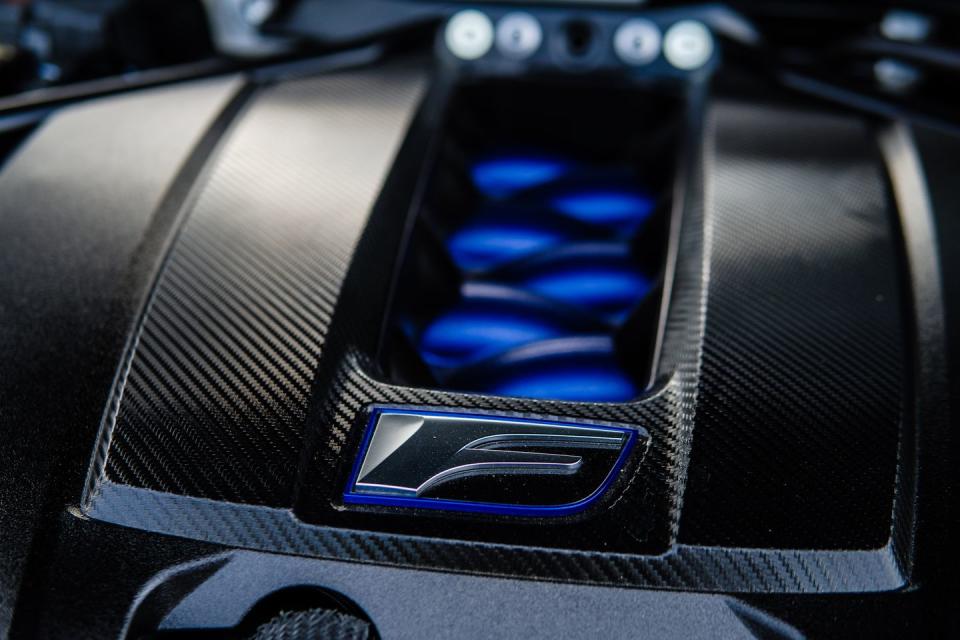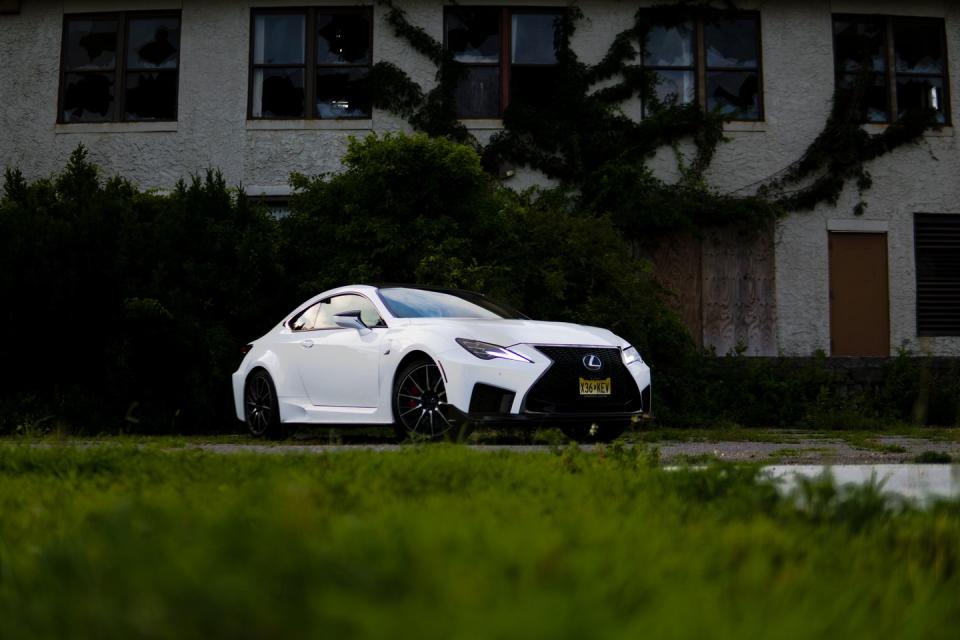The 2020 Lexus RC F Is a Great V-8 Coupe Hampered by Old Tech

Scan the market and you'll find that, among luxury sports sedans and coupes, only Lexus and Genesis have kept the naturally aspirated V-8 alive. Imagine telling someone 20 years ago that Lexus's free-breathing V-8 would outlive BMW's, Cadillac's, and Mercedes'. But that's where we are, and the 2020 RC F is all the better for it.
This is, of course, the result of Lexus's trepidation regarding three things: highly-stressed engines, new technology, and the relentless upgrade cycle practiced by its competitors. The Germans, British, and Americans steamroll through iteration after iteration of turbo V-8s, supercharged sixes, and overworked fours. But Lexus holds its ground, selling ever more cars with its familiar 3.5-liter naturally aspirated V-6 and quietly keeping its wonderful 5.0-liter N/A V-8 alive.

It manifests elsewhere, too. The worst parts of the RC F come from its age and the weird path of its development. It's something of a Frankenstein creation, with underpinnings ripped from the current GS, current IS, and previous-generation IS convertible. Its gearbox is the old Aisin eight-speed automatic, not the new 10-speed you'll find in the LC 500. Its interior, not particularly impressive when it debuted five years ago, remains mostly unchanged.
Practically, what this means is that the infotainment is still infuriating; finding a station on satellite radio or changing the vehicle settings is a massive chore. CarPlay works, but since the display in the dashboard is not touch-sensitive (yes, really), you're stuck with the jumpy, imprecise touchpad controller. And since the bulbous interior is dominated by plastics, the cockpit doesn't feel appropriate to a $65,000 car.

A shame, because the particular RC F I drove had an extra $24,000 in options, bringing the total price to $89,960. That puts it deep into BMW M4, Alfa Romeo Giulia Quadrifoglio, and Mercedes-AMG C63 territory. Those cars all come with nicer interiors, even if the Alfa's quality leaves a lot to be desired.
More importantly, those cars are all sharper and lighter than the Lexus. The problem isn't just the weight. The LC 500 outweighs the 3902-lb RC F, yet feels more composed, more precise. The problem is that the suspension, chassis, brakes, and transmission haven't been dialed in to cope with the mass. Despite massive 255/35R-19 front and 275/35R-19 rear Michelin Pilot Sport 4S tires, the RC F is neither as stable under heavy braking nor as confidence-inspiring through corners as the best sports sedans.

The transmission, left to its own devices, is eager to upshift and generally indecisive on back roads. The shifts are quick, but coupled with lazy throttle response in Normal or Sport modes, the transmission makes the RC F feel slow around town. Some of that is real; the RC F's V-8 can't match the torque or power delivery of a C63 or M4, delivering slower 0-60 and quarter-mile times.
But even if it doesn't deliver the pulse-quickening off-the-line acceleration of a German sports sedan, the 5.0 provides so much more engagement. It bellows and roars to its 7300-rpm redline, delivering 385 lb-ft of torque and 472 hp in the most in-your-face way possible. It's able to settle itself on the highway, accentuating the RC F's grand touring prowess, yet barks alive with two clicks of the left shift paddle.

The other bit of dynamic magic comes from the torque-vectoring differential, an optional upgrade over the standard limited-slip. This allows the RC F to feed more power to the outside wheel in a corner, improving steering response and making the most of the available traction. Dropped into Track or Slalom mode, it noticeably improves turn-in, helping the car rotate into corners and chew its way out. It helps compensate for the car's substantial nose-heavy weight bias.
Taken alone, the engine and torque-vectoring diff are exceptional bits that would massively improve any car. As a whole, though, the RC F doesn't live up to its best components. The ride is stiff enough to eliminate grand touring from its roster of skills, but the suspension, steering, and brakes can feel overwhelmed on the most entertaining roads. The engine is a masterpiece, but it's held back by a transmission that doesn't know what to do, bolted to a car whose weight dulls every response. The Lexus may end up being the most long-term reliable car in its segment, and it definitely has the most engaging engine, but the RC F can't deliver the all-around prowess we expect from a nearly $90,000 sports coupe.

You Might Also Like

 Yahoo Autos
Yahoo Autos 